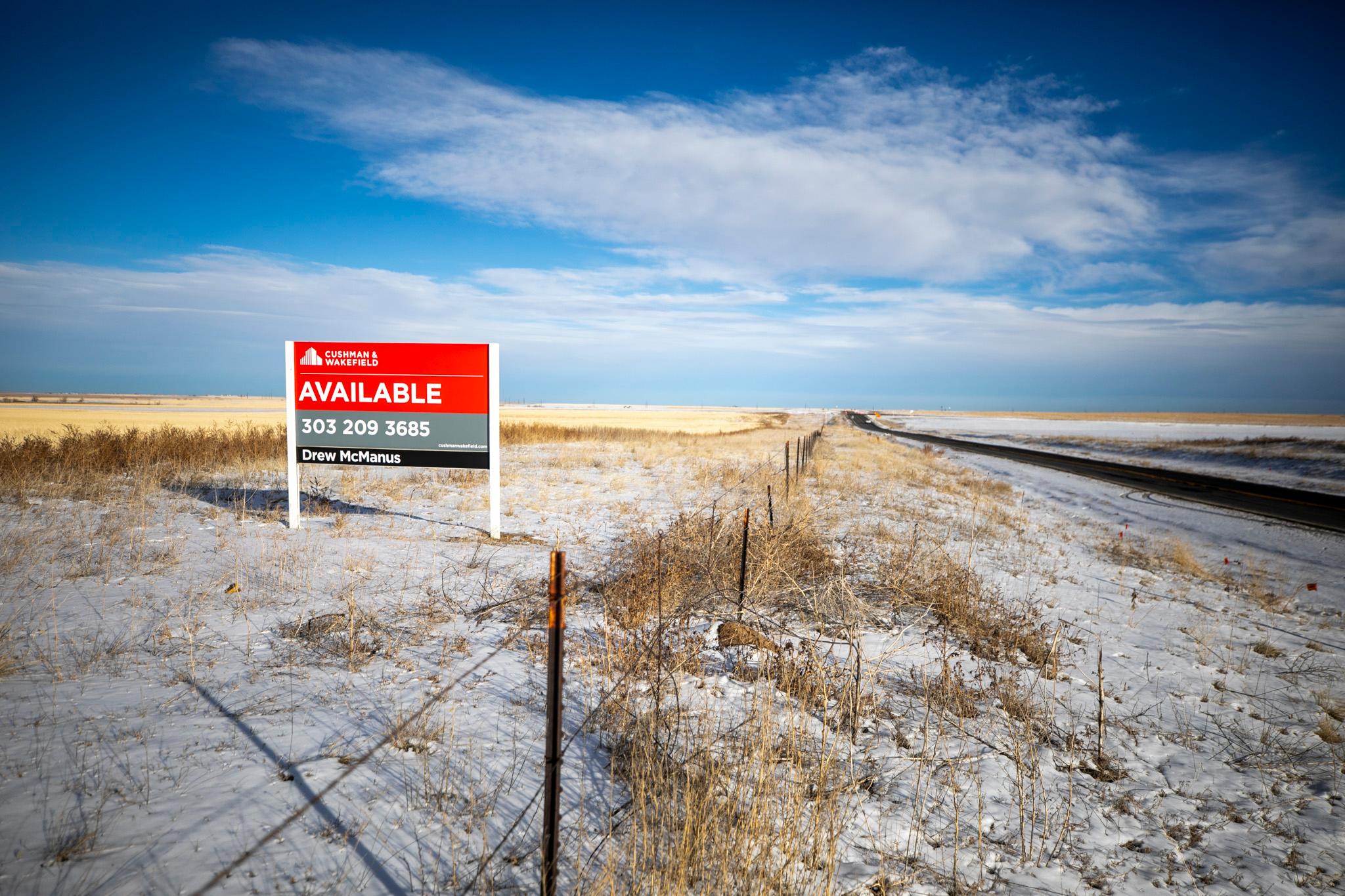The city of Denver and a local developer are set to make a major land deal. The developer will give the city the Park Hill Golf Course, allowing Denver to open an enormous new public park on 155 acres near downtown.
The developer, Westside Investment Partners, will get a very different plot of land: 145 sprawling acres of wide-open fields near Denver International Airport and a few rising warehouses. It’s a major change of plans for Westside, which had originally hoped to build a dense mixed-use community near the city core.
So, what exactly could Westside do with a sprawling stretch of land near the airport’s busy runways?
The answer: Quite a lot.
The land is located in the Aerotropolis, one of Metro Denver’s fastest-growing corridors, where developers are building massive warehouses for national companies.
Andy Klein, of Westside, has already been developing land in the area for years, preparing it for sale to other developers by completing rezoning and infrastructure projects.
In 2022, Westside sold a 152-acre parcel at 72nd Avenue and Argonne Street for $49.2 million to PepsiCo. could build a 1.2 million-square-foot manufacturing facility on the site.
On its website, Westside has advertised thousands of other acres in the area available for other developers to build up

Klein did not respond to Denverite’s multiple requests for comment.
Assuming the deal goes through, Westside will take over ownership of a piece of city-owned land where 64th Avenue will eventually intersect with Valley Head Street. It could be one more place for Westside to develop and sell.
One thing it likely won’t be: a residential community, since it’s so close to DIA. And while it’s currently owned by the city of Denver, the land actually sits in Adams County, adding another layer of complexity.
“Similar to the restrictions in place at Park Hill Golf Course, this property also contains restrictions on its use due to its proximity to the airport,” explained Laura Swartz, a spokesperson for Denver’s Department of Finance. “It can only be used for industrial and cannot become residential, and Westside will be required to coordinate with Adams County and comply with that county’s land use processes and regulations.”
Adams County did not respond to Denverite’s requests for comment.
Aerotropolis is a major development area for Denver.
Tyler Reed, a partner and executive managing director for Colorado for Stream Realty Partners, described the Aerotropolis area as “the future hub of development growth and business for Metro Denver.”
Unlike most of the City and County of Denver, where land is scarce, there are thousands of wide-open acres near the airport, which is the largest economic driver in the metro area.
“You're seeing high-density residential, single-family homes,” Reed said. “You're seeing retail, industrial, data center, manufacturing, you're seeing basically development and growth across all commercial real estate product types, and including housing too.”
People are moving to the Aerotropolis, and hundreds of millions of dollars in infrastructure is in the works: roads, electricity, water and sewer.
Meanwhile, land prices near the airport are steadily rising.
“To me, that represents great opportunities for companies, residents of Colorado and our great state,” Reed said.
Westside has a long history of horizontal development.
The new property near the airport may be a good fit for Westside. The company has a strong reputation as a “horizontal developer,” said Jeff Peshut, who has been involved in Park Hill Golf Course negotiations for decades. Peshut also is the director of the real-estate program at Metropolitan State University Denver.
The company’s focus is acquiring land, shepherding it through rezoning and infrastructure projects and ultimately selling it to other developers for their projects, he said.
The land it’s getting near the airport could be a prime place to do that. If the new parcel is successfully developed, Westside could sell it for far more than the $24 million the company had previously paid for the Park Hill Golf Course in 2019, Peshut said.
Originally, Westside had hoped to develop the golf course land. But Denver voters repeatedly blocked its efforts, leaving it with land that could only be used as a golf course or open space. Peshut estimates the golf course land was left with a value of only $3 million to $5 million because of its use restrictions.
How did the land exchange work?
The city-owned land in Adams County was part of the Airport Land Plan, part of 16,000 acres originally acquired by the city to build industrial facilities near the airport.
Oddly enough, the city can’t simply give the land to Westside. Instead, the city will essentially have to pay the airport (which is part of the city) to let go of the land. To complete the deal,
the city is transferring $12.7 million from the Parks Legacy Fund to the airport.
The fund was created by voters to acquire land for parks, open space and trails.
“Westside …will not receive any money from the city,” Swartz said. The $12.7 million will go to the airport; the city did not immediately have an answer about how the airport may use the money.

The city is now working with both Adams County and Westside to finalize the deal.
“We are on track to close on the property exchange this spring and have the Park Hill property re-opened to the public by summer,” Swartz said.
Meanwhile, the former golf course is still fenced off, but plans are brewing. The city is renaming the property as the Park Hill Open Space.
When the park is complete, it will be the fourth largest in Denver. The project will be funded by a mix of public and private dollars, Parks and Recreation head Jolon Clark said at a recent press conference.
Parks and Recreation is launching a public process about the park’s future. To participate, you can sign up here.











